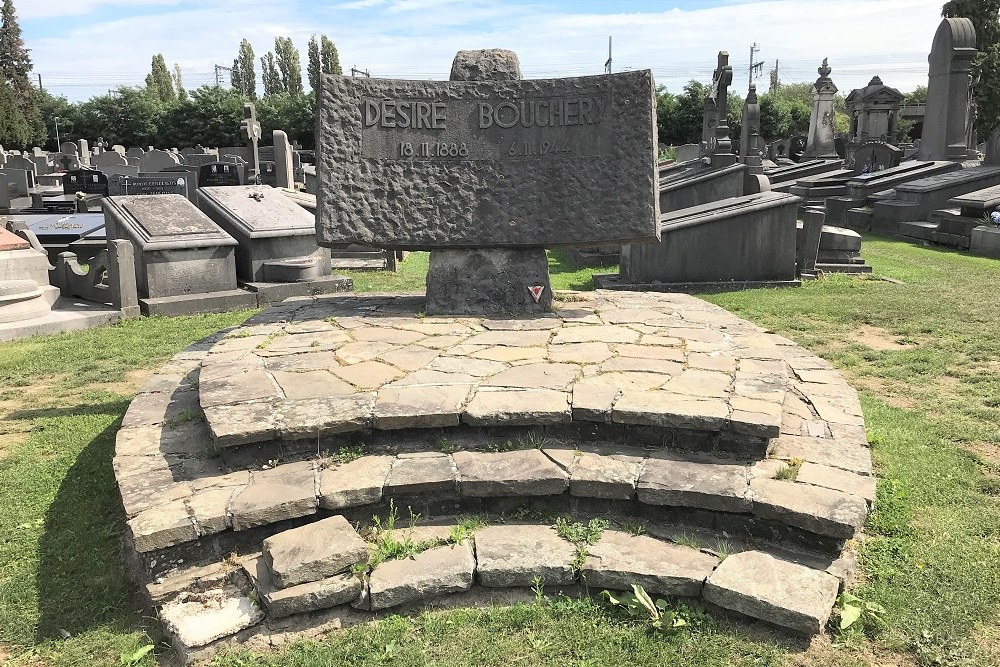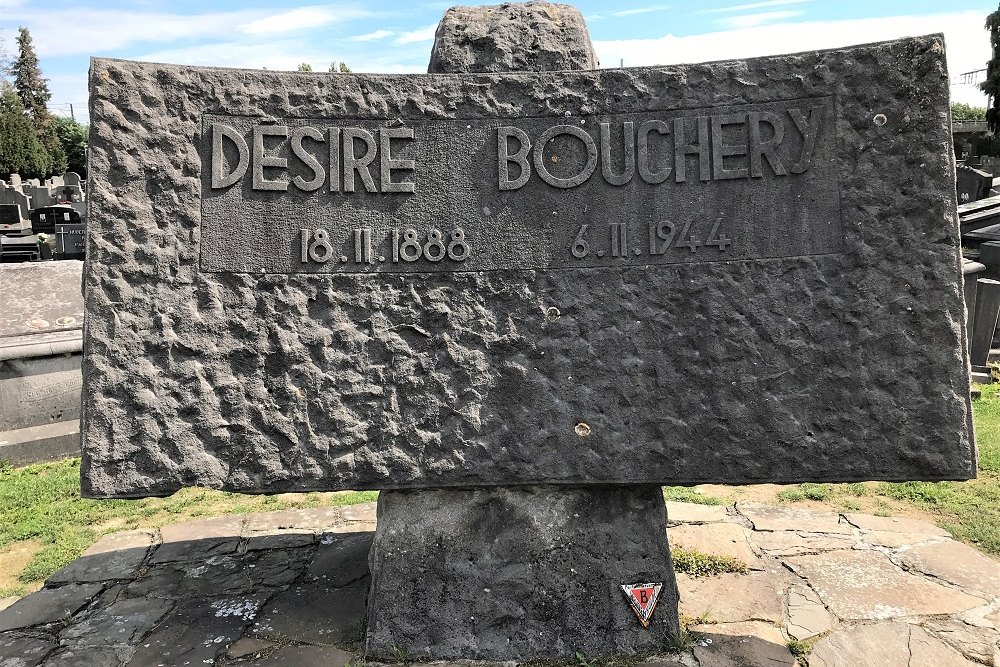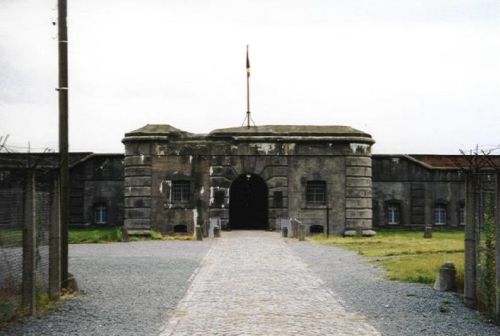Memorial Bouchery Municipal Cemetery Mechelen
2372/5000
Born in Ghent (1888), Désiré Bouchery has to take care of the family at an early age due to the premature death of his father. Despite his excellent school results, he has to prematurely interrupt his humanities study at the Ghent Atheneum. Influenced by his circle of friends, he becomes a member of "Reiner Leven" and "the Socialist Young Guard", which is the root of his later political career within the BWP, the Belgian socialist party.
In order to be able to work full-time with the socialist idea, he changes his first job as a bank clerk for the position of editor at the newspaper "Vooruit".
In 1913 he starts training young socialists for their militant activities within the Central Workers' Education.
In 1919 he was elected as a representative of the people. Later he became alderman for education in Mechelen and minister of PTT from 1936 to 1938.
His activities came to a sudden end when the German army invaded Belgium on May 10, 1940. Already that evening Mechelen had to endure the first German incendiary bombs.
On May 17 at 10.30 am, German Major General Karl Kriebel takes over the administration of the city of Mechelen. Shortly afterwards, Bouchery no longer appears at the Mechelen city council and on December 14, 1941, the occupier will also oblige him to stop all educational activities. This immediately marks the end of his political and educational activities.
Meanwhile, a resistance movement is also developing in Mechelen. There are regular skirmishes and grenade attacks. For example, on May 13, 1941, a rifle grenade exploded in front of the buildings of the Kreigskommandatur.
On 23 May, the German command will use the dreaded tactic of "Wahlgeisel": to select notables from a city and to take them hostage as retribution for an attack. On May 26, Désiré Bouchery, among others, will be imprisoned for six weeks in the SS camp in Breendonk.
In retrospect it will turn out that those six weeks of forced labor in the concentration camp will fatally damage his health. On November 6, 1944 he died as a result of assaults and hardships while being taken hostage in the SS camp of Breendonk.
Source: Mechelen blogs - category history
Do you have more information about this location? Inform us!
Source
- Text: Marie-Christine Vinck
- Photos: Marie-Christine Vinck
Related books
Nearby
Museum
Point of interest
- Bomb Craters Mechelen - Mechelen
- Destroyed Church Muizen - Muizen (Mechelen)
- Remains V2 Engine - Hombeek
Monument
- War Memorial Cemetery Mechelen - Mechelen
- Peace Tree Mechelen - Mechelen
- Memorial Veterans Mechelen - Mechelen
Cemetery
- Belgian War Graves Communal Cemetery Mechelen - Mechelen
- Commonwealth War Graves Mechelen - Mechelen
- Belgian Graves Veterans Onze-Lieve-Vrouw-Waver - Onze-Lieve-Vrouw-Waver







